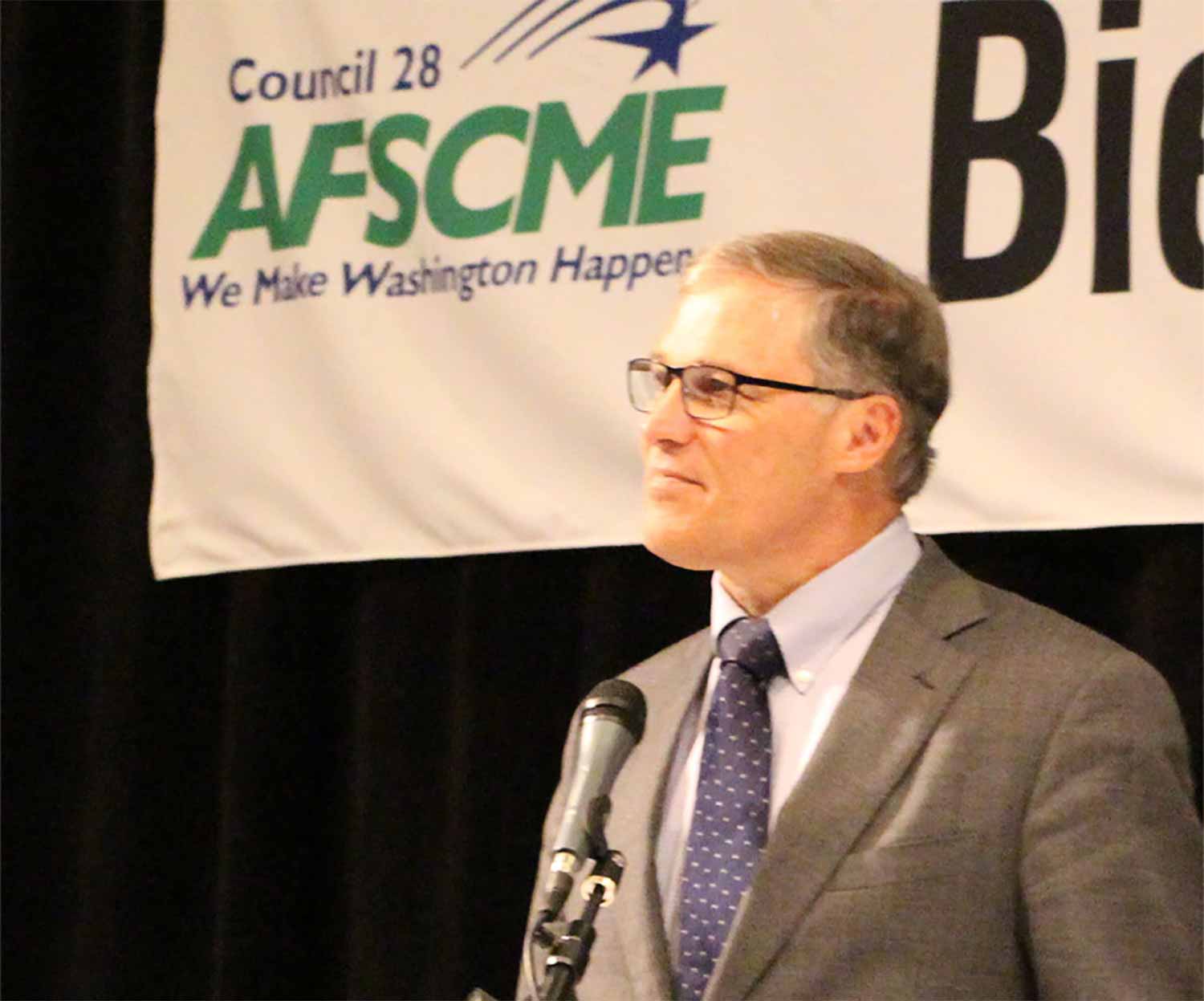The Washington Policy Center’s Jason Mercer just uncovered an interesting bit of information concerning last summer’s secret contract negotiations between state employee unions and Jay Inslee’s office. Public records have revealed the Washington Federation of State Employees (WFSE) demanded this addition to Article 49 concerning strikes (emphasis added):
“Employees will not be required to pass a picket line in the performance of their duties or to arrive at their work place, provided such picket line has been officially recognized by the Union. Employees will suffer no loss in pay as a result of their refusal to cross an officially recognized picket line.”
It is illegal for state employees (including teachers) to strike. That the WFSE attempted to bypass the law—it isn’t the first time—is not the particularly interesting point. Rather, it’s the timing of the WFSE’s attempt that reveals the union’s intention. The Washington Policy Center,
“First there was the failure of state grain inspectors doing their job after the Governor removed the Washington State Patrol safety escorts. As reported by OPB:
“‘On July 1, Gov. Inslee called United Grain and the ILWU to let them know he was pulling the Washington State Patrol on July 7.
‘The decision to remove the state patrol effectively stopped exports at the Vancouver port’s United Grain terminal.
‘Once Inslee pulled the state patrol escorts, state grain inspectors sent word they would not cross the ILWU’s picket line, halting all but a few shipments from United Grain’s terminal.’
“During that time there was also ongoing fallout from the “slowdown” at West Coast ports due to the contract dispute between Pacific Maritime Association and the International Longshore and Warehouse Union.”
“Concerning the port slowdown Congressmen Dan Newhouse (WA-4) and Dave Reichert (WA-8) have introduced the Protecting Orderly and Responsible Transit of Shipment (PORTS) Act (H.R. 3433):
“‘The PORTS Act clarifies current law to ensure the president can intervene to protect the economy in the case of a slowdown. The bill would also allow governors to appoint boards of inquiry under Taft-Hartley as well as petition a court of jurisdiction to intervene in the case of a slowdown, strike, or lockout. The final piece of the legislation calls for a study on the recent West Coast ports slowdown in order to understand its impact and prevent future occurrences.’”
In other words, the WFSE’s demand would have not allowed any interference to ILWU’s strike by state employees. State grain inspectors would not have been able to cross the ILWU’s picket line at any point in time—not that Inslee gave them much of a choice anyway.
Demands like these are why it is so important that the public have access to contract negotiations. Currently, the public is excluded from the conversation even though it’s the taxpayers’ money that is at stake. Of course, Inslee and the unions leaders undoubtedly like it that way, because if the negotiations were open, the public could readily see that they are usually negotiating from the same side of the table.




